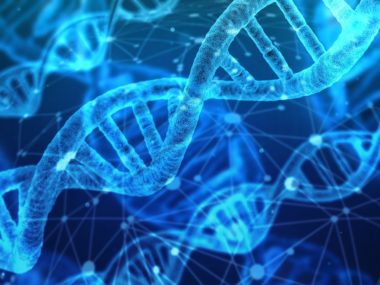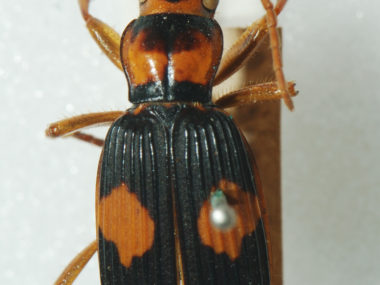Because life is part of the very nature of God, He has always lived and always will live. All other life was created by God, whether it be spiritual or physical (“…by Him were all things created… visible and invisible…”: Col. 1:16). Since God created living organisms to illustrate His attribute of life, the more we learn about the nature of that life, the more we should be able to learn about God. Beyond that, a number of important issues in our society and in our lives are dependent upon a proper understanding of life. What life is and when life begins and ends, impacts our understanding of such things as birth control, abortion, in-vitro fertilization, fetal tissue research, cloning, and euthanasia.
The following article is a from Devotional Biology: Learning to Worship the Creator of Organisms, Chapter 2.4, pgs. 53-55. The views expressed reflect those of the author, and not necessarily those of New Creation.
There are several Biblical reasons to believe that life is far more than physical. First, since God is alive, but is also spirit (John 4:24), God’s life—the source of all life—is not physical. Second, cherubim are alive, but they are spirit beings (having no body), so the life of spirit beings is not physical either. Third, after creating Adam, it was not until after God breathed the ‘breath of life’ into him that ‘man’ became a living soul (Gen. 2:7).
Elsewhere in Scripture human death comes with the departure of the ghost or spirit or soul (e.g. Job 14:10, Acts 12:231) and “…the body without the spirit is dead…” (James 2:26). Ghost, spirit, and soul are all contrasted with the body (e.g. “…a spirit does not have flesh and bones…”: Luke 24:392), suggesting ghosts, spirits, and souls are not physical. Life, which also leaves the body at death would seem to be non-physical also. Fourth, each time God created animals, He called nephesh hayim into being (translated as ‘living creatures’ in Gen. 1:20-21, 24-25). Nephesh hayim is the same Hebrew phrase that is translated ‘living soul’ in reference to Adam in Genesis 2:7.3 If human souls are something more than physical, then there is an implication that animal life is also something more than physical.

There are also non-biblical reasons to believe that life is more than just physical. First, even when studied carefully in a scientific laboratory with many sophisticated instruments, the death of an organism involves no change in mass or volume. When life departs, nothing is detected as departing (i.e. nothing leaving the body can be seen, smelled, tasted, felt, or heard). If life is something that actually leaves an organism at death, it would seem that it is not physical. Second, though life in the naturalistic worldview (naturalism) is thought to be nothing more than chemistry, there are few people who truly believe that their own life—or even the life of their pet cat or dog—is merely chemical reactions and nothing more. Third, biology textbooks written from a naturalistic worldview never define life. Sometimes the question “What is Life?” is never even discussed. In all cases, the ‘characteristics’ or ‘common traits’ of living things are listed but life is never defined. Life being something more than physical would explain why biologists have not been able to identify it after all these centuries of study. To clarify, what is being suggested here is that all types of life (biblical life, nephesh life, etc.) are non-physical in nature. Even the biological life of bacteria and plants is nonphysical in nature. In fact, the non-physical nature of all life might give us further insight into different types of organisms. Some organisms may differ only in non-physical ways. This would have to be true in the case of non-physical beings like God and spirit beings because they are only non-physical. But the non-physical nature of life itself makes it possible for two physical beings that are identical physically, might actually differ in nonphysical ways. And, even between two organisms that differ physically, it is possible for the non-physical differences to exceed the physical differences. And, if life really is nonphysical, we can neither directly perceive life, nor discern differences between different types of (non-physical) life. This in turn means that there may be many more types of (non-physical) life than we have so far recognized.

The non-physical nature of life also provides insight in the nature of biology. In the preceding chapter we observed that although biology is supposed to mean ‘the study of life’, biology cannot study all of life because biology cannot study living spirit beings. The further revelation that life is not physical suggests biology has yet another limitation—that it cannot even study life in physical beings. This creates the somewhat ironic situation that biology cannot study life itself! What biology does study, is organisms—the physical things that possess life.
Footnotes
- Further biblical references to giving up the ghost or spirit or soul: Gen. 25:8, 17; 35:18, 29; 49:33; Job 3:11; 10:18; 11:20; 13:19; Jer. 15:9; Eccl. 3:21; Matt. 27:50; Mark 15:37, 39; Luke 23:46; John 19:30; Acts 5:5, 10. ↩︎
- Other biblical references referring separately to the physical and ghost or soul or spirit or Deu. 6:5; Mark 12:30; Luke 10:27; I Thess. 5:23; Heb. 4:12. ↩︎
- The point here is not to equate the human soul with the animal soul, for it is clear that there is something quite distinct about the spirit of man (e.g. Eccl. 3:21), but only to say that the Bible indicates there is more to an animal than a physical body. ↩︎











